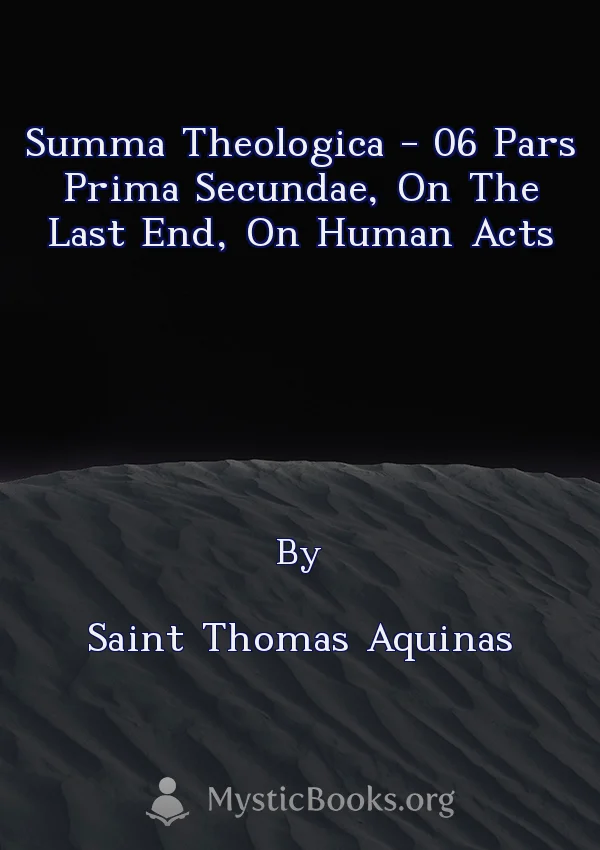
Summa Theologica - 06 Pars Prima Secundae, On the Last End, On Human Acts
'Summa Theologica - 06 Pars Prima Secundae, On the Last End, On Human Acts' Summary
This section of the *Summa Theologica* delves into the realm of human actions and their ethical implications. Aquinas begins by exploring the concept of the ultimate end, arguing that the pursuit of happiness is the fundamental goal of all human activity. He then moves on to examine the nature of human acts, emphasizing the importance of free will and the role of reason in discerning the good. Aquinas explores the categories of human actions, distinguishing between acts that are good in themselves, acts that are good because of their consequences, and acts that are intrinsically evil. He also discusses the various factors that can influence human action, including passion, habit, and the influence of external circumstances. A significant portion of this section is devoted to the concept of virtue, which Aquinas defines as a stable disposition to act in accordance with reason. He analyzes various virtues, both intellectual and moral, and outlines the importance of developing a virtuous character. Aquinas also addresses the problem of sin, which he defines as any act that goes against the dictates of reason and the divine law. He explores different types of sin, including original sin, venial sin, and mortal sin, and offers guidance on how to repent and obtain forgiveness. Throughout this section, Aquinas emphasizes the importance of living a moral life in accordance with God's will. He believes that the pursuit of virtue and the avoidance of sin are essential for attaining true happiness, both in this life and in the next.Book Details
Language
EnglishOriginal Language
Published In
Genre/Category
Tags/Keywords
Authors
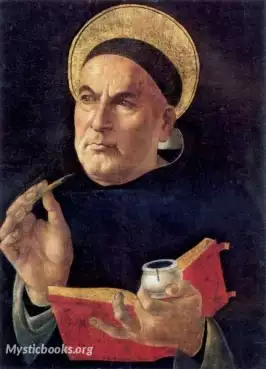
Saint Thomas Aquinas
Italy
Thomas Aquinas was an Italian Dominican friar, philosopher, Catholic priest, and Doctor of the Church. An immensely influential philosopher, theologian, and jurist in the tradition of scholasticism, h...
Books by Saint Thomas AquinasDownload eBooks
Listen/Download Audiobook
- Select Speed
Related books

Domestic Bliss by Ella Wheeler Wilcox
Domestic Bliss is a poem by Ella Wheeler Wilcox that explores the complex and often contradictory nature of domestic life. The poem begins with a desc...
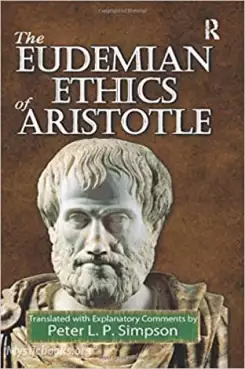
Eudemian Ethics by Aristotle
The Eudemian Ethics is a work of philosophy by Aristotle. Its primary focus is on ethics, making it one of the primary sources available for study of...

Night and Day by Virginia Woolf
Virginia Woolf is one of the most influential and controversial feminine figures in the literary life of the London society. Night and Day is one of h...
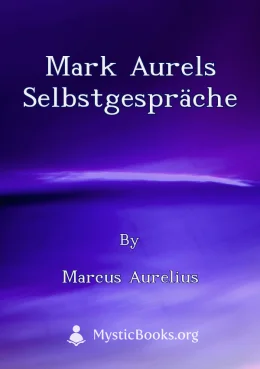
Mark Aurels Selbstgespräche by Marcus Aurelius
Marcus Aurelius' *Selbstgespräche* (Meditations) is a collection of personal reflections written by the Roman emperor Marcus Aurelius. It offers a gli...
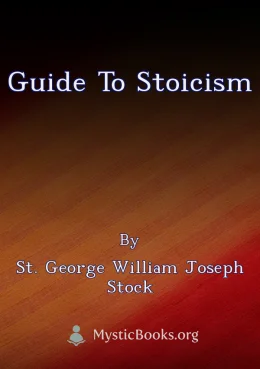
Guide to Stoicism by St. George William Joseph Stock
This book is a guide to the philosophy of Stoicism, a school of thought that originated in ancient Greece and Rome. The Stoics believed that the key t...
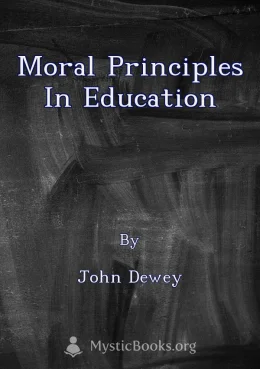
Moral Principles in Education by John Dewey
In "Moral Principles in Education," John Dewey argues that moral education is not simply a matter of rote memorization of rules but rather a dynamic p...
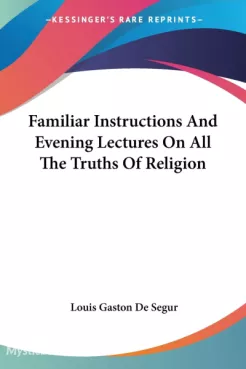
Familiar Instructions and Evening Lectures on All the Truths of Religion, Volume 2 by Louis Gaston de Segur
It is a religious book that delves into the teachings of the Catholic Church. This book is a part of a two-volume set, with the second volume offering...
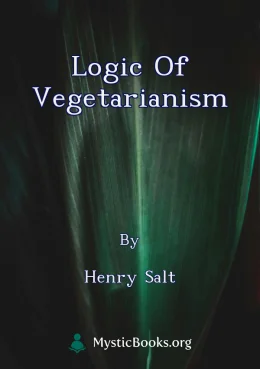
Logic of Vegetarianism by Henry Salt
Henry Salt's *Logic of Vegetarianism* presents a compelling case for vegetarianism, using clear logic and engaging dialogues. Salt examines the ethica...
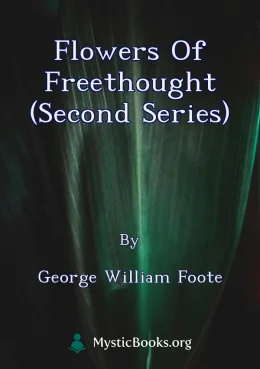
Flowers of Freethought (Second Series) by George William Foote
This book, "Flowers of Freethought (Second Series)", compiles a collection of articles by George William Foote, a prominent figure in the Freethought...
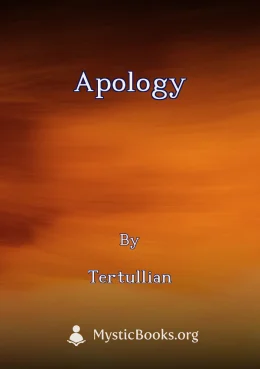
Apology by Tertullian
Tertullian's *Apology* is a powerful defense of Christianity written in the late 2nd century AD. It addresses the Roman authorities directly, challeng...
Reviews for Summa Theologica - 06 Pars Prima Secundae, On the Last End, On Human Acts
No reviews posted or approved, yet...